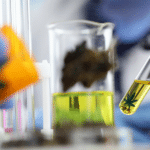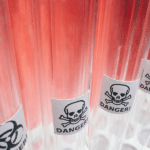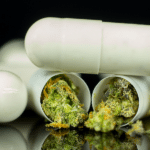An unfortunate slogan of the cannabis legalization movement has been “Regulate cannabis like alcohol.” But cannabis, unlike alcohol, is not associated with domestic violence, sexual assault, liver toxicity, cancers, neurodegeneration, and the list goes on.
Cannabinoids can, in fact, attenuate many of these issues, as described in a recent review. A group of Canadian scientists systematically reviewed publications about CBD as a drug for people abusing alcohol. They conclude that CBD does not cause harm in humans and does not interact negatively with alcohol. Animal studies suggest that CBD protects against many specific problems, including wet-brain seizures during alcohol withdrawal, neurodegeneration (which leads to aggression and cognitive impairment), inflammation, liver toxicity, and steatosis. CBD also appears to diminish some of the addictive qualities of alcohol. As the scientists note, the major limitation is a lack of clinical studies. Not every beneficial effect of CBD in animal models will apply to humans, but if even a few of these effects pan out it will be significant for alcoholics and heavy drinkers. Currently, there are two medications commonly prescribed to heavy drinkers, naltrexone and acamprosate. But these drugs are only effective in about 10-12% of people. Programs like Alcoholics Anonymous appear more useful than these medications, but still leave many people without sufficient support to quit and stay sober.
Read study: Cannabidiol as a novel candidate alcohol use disorder pharmacotherapy: A systematic review
Adrian Devitt-Lee is a research scientist and longtime Project CBD contributor. © Copyright, Project CBD. May not be reprinted without permission.







